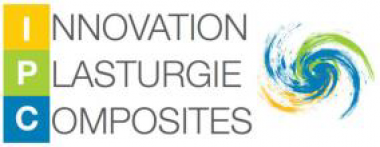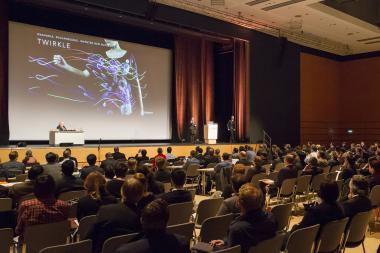SMART COMPOSITES: IPC UNVEILS AN INTELLIGENT MOTORCYCLE HELMET AND A MULTIFUNCTIONAL WIND TURBINE BLADE
IPC, the Industrial Technical Centre with expertise dedicated to plastic and composite innovation, is presenting two prototypes on its stand: an intelligent motorcycle helmet and a multifunctional windturbine blade. "With these two prototypes, IPC demonstrates its ability to functionalize composites, particularly with printed electronic components. Live demos will be organized during the three days of the show on our booth," explains Bertrand Fillon, General Manager of Research at IPC. The helmet was manufactured in partnership with the technical and creative paper manufacturer Arjowiggins, and the wind turbine blade, with the CEA. These two demonstrators will also be exhibited in Germany at the LOPEC exhibition 2019 in Munich on 20-21 March.
IMPROVE THE USER EXPERIENCE
The objective is to add new features to improve the user experience, without impacting security. The motorcycle helmet is equipped with sensors and NFC communication functions. "Here, printed organic electronics are used in the helmet to allow remote temperature changes," adds Lionel Tenchine, Program Line Manager for "Technologies for Intelligent Products" at IPC. The helmet manufacturing process is based on the use of composites and the infusion process.
DETECTING POTENTIAL DAMAGE IN ADVANCE
Developing predictive maintenance is an important issue when it comes to avoiding sudden, serious accidents. A recent McKinsey study estimates that by 2025 it will save $630 billion for companies, for example. The wind turbine blade presented at JEC World detects potential damage that could occur on the blade structure beforehand, making it possible to carry out preventive repairs on the one-meter-long blade. Printed organic electronics are used in the demonstrator to integrate strain gauges and the temperature detection function.
AGENCE APOCOPE







